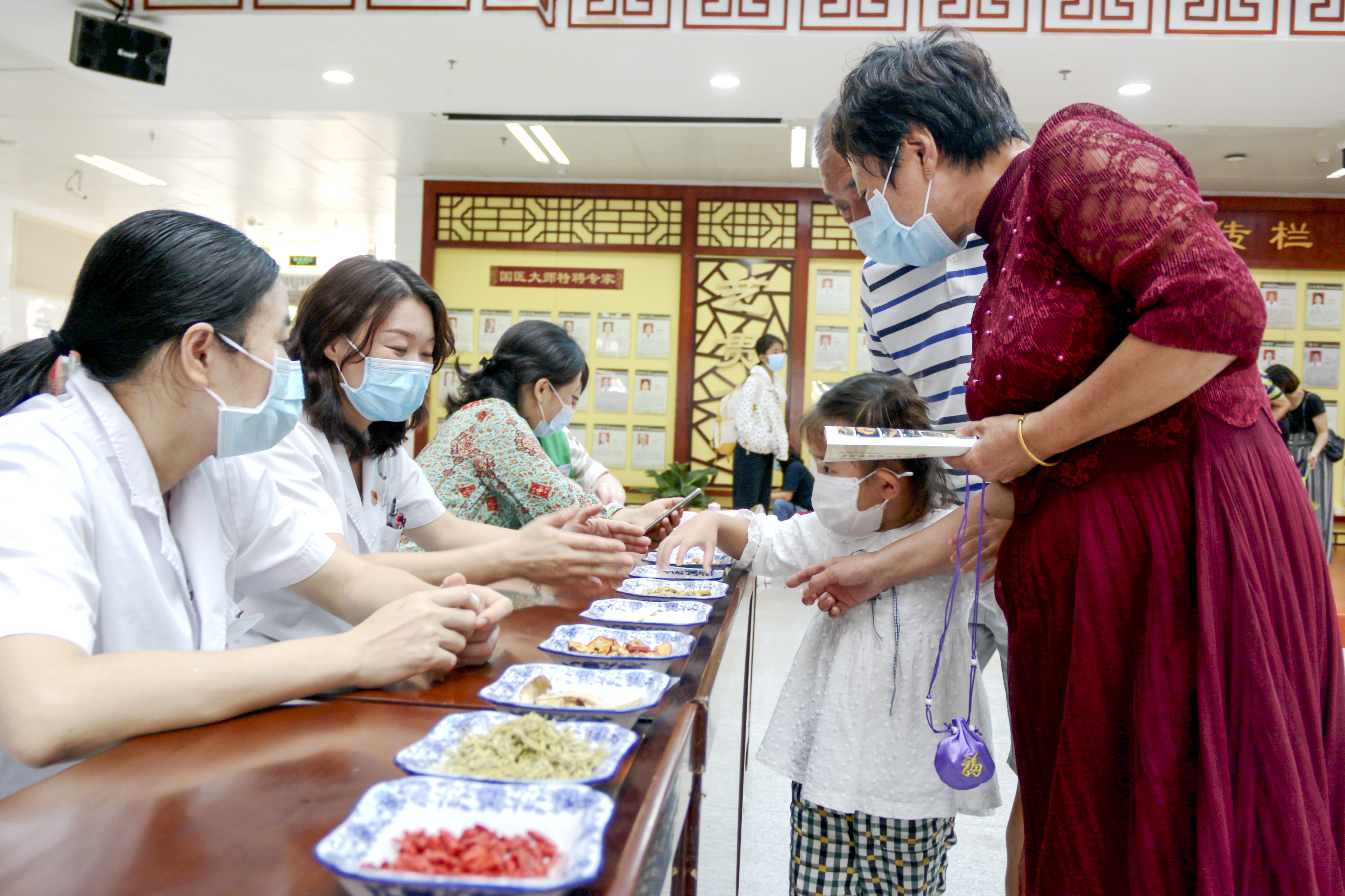China has recently further adjusted and optimized its COVID response by releasing 10 new measures, which allow asymptomatic carriers and mild COVID-19 patients and those who meet certain requirements to quarantine at home.
Do residents need to take TCM to prevent COVID-19 infections? Are there any guidelines for patients with mild symptoms to take TCM? How can we improve our immune systems according to TCM?
On December 8, Guangzhou's medical experts shared their views on traditional Chinese medicine in the treatment of COVID-19.

(Photo: Nanfang Daily)
TCM alleviates COVID-19 symptoms case by case
Traditional Chinese medicine (TCM) is used in more than 95% of treatment in Guangzhou's recent COVID-19 outbreak, helping throughout the whole process of epidemic response.
"TCM can be used for mild cases to prevent symptoms from deteriorating. In fact, TCM can be used at different stages after infection to alleviate symptoms," said Lin Lin, director of the Department of Respiratory and Critical Care Medicine, Guangdong Provincial Hospital of Traditional Chinese Medicine, and deputy head of the Guangdong Provincial COVID-19 TCM Prevention and Treatment Expert Group.
According to Lin, there are few differences between symptoms of a common cold, influenza, and at the early stages of COVID-19.
Getting cold shows lighter symptoms such as sneezing or a runny nose. Patients may recover in a couple of days.
Those who are infected with influenza have more severe symptoms. Patients may suffer fever, feeling chills, fatigue, discomfort, a sore throat, sneezing, a runny nose, and cough. It will last for almost a week.
As for COVID-19 mild cases, patients may develop symptoms like those of influenza. "However, COVID-19 infections may lead to severe fatigue and fever," Lin added.
Tips on distinguishing asymptomatic, mild, moderate, and severe cases
Asymptomatic cases refer to those who are tested positive yet develop no obvious discomfort. Mild cases, on the other hand, refer to those who suffer fever, a sore throat, coughing, nasal congestion, runny nose, poor appetite, fatigue and muscle aches.
If lower respiratory tract symptoms shows, such as cough, expectoration, tightness in the chest, shortness of breath, it would considered moderate. And dyspnea is a sign of severe cases.
"Different treatment should be employed on a case-to-case basis." Antipyretics and cough medicines can be used to relieve symptoms, and the symptoms will gradually improve in about 3 to 5 days. Lin added, "If a patient continues to develop more severe symptoms after taking medicines, the individual should seek medical attention as soon as possible.”
In Lin's opinion, patients with a high fever, phlegm, tightness in the chest and feeling short of breath may suffer from a lung infection and should go to hospital as well.
For young people, symptoms of COVD-19 infection should not be ignored
"Young people should not overlook the symptoms of COVD-19 infection." Lin stressed. To battle against the virus, young patients should drink more water, have a good sleep, and keep a good diet.
In addition, medicine should be taken in accordance with symptoms. "Young patients should also go to hospital and seek professional treatment if they find symptoms deteriorate."
How soon can asymptomatic carriers and mild cases recover when choosing home quarantine?
"In general, asymptomatic cases may recover in 5 days, while mild cases in 7 days," Lin said.
However, according to Lin, the patients should seek medical attention in a timely manner if they suffer from a continuous high fever, diarrhea, low appetite, coughing, yellow sputum, tightness in chest, difficulty in breathing and other lower respiratory tract symptoms.
TCM encourages people to improve their immune systems by developing good habits. "We should pay attention to ventilation and sanitation," Lin suggested.
"Enough sleep is important. Do not scroll your screens before sleep, because it stops you from sleeping early."Lin highlighted the importance of a good sleep and exercises.
Infants and younger children need special attention
"The antigen test can apply to infants and young children. But it cannot replace a nucleic acid test to decide whether they are infected," said Xu Hua, director of the Pediatrics and Neonatology Department of the First Affiliated Hospital of Guangzhou University of Chinese Medicine.
For those confirmed infected, if they develop no or mild symptoms, and have appetite as usual, they can consider home observation and treatment.
Nevertheless, when infants and young children are suffering a fever, coughing, and other obvious symptoms, it's needed to seek medical attention. Moreover, those with underlying diseases or immunodeficiency diseases are recommended to go to the hospital for treatment.
"The infected newly-born and young children need special attention," Xu Hua said. Parents should take infected children to the hospital immediately if they have a high fever, feel off-colour, drink less milk or develop slow response to patting.
Author | Hannah, Riz Zhang (intern)
Editor | Wing, Steven, Will, Jerry
















